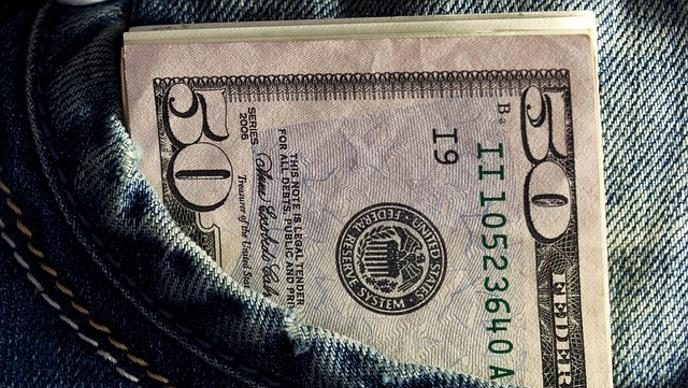“A penny saved is a penny earned.” It’s a quote that many of us have heard so many times before, and while it is commonly attributed to Benjamin Franklin, he probably wasn’t the first one to say it. Even so, most of us have taken this basic advice to heart. Saving a penny is, broadly speaking, just as good as earning another penny. Sort of. I know, the logic kinds of falls apart because you need to keep earning pennies, as you must inevitably spend some of them too.
Most people might not be intimately familiar with complex investment strategies or confusing tax code, but they think they have a fundamental grasp on money. You get a job, you earn some money, and you spend that money to get the things you want. If the thing you want costs more money, then you need to save some money in order to afford it. Or maybe you choose to borrow some money so you can buy it now. But there’s one fundamental truth about the nature of money that so many people tend to get wrong.
All Money Is the Same
At its core, money is what you call “fungible.” This means that each incremental amount of money that you have in your possession is entirely interchangeable. Once you have a dollar in your possession, it’s no different than any other dollar you already have. That might sound obvious… until you start looking at the relationships that people have with their money. For example, they can treat their money differently depending on where it came from.

Let’s say that you still have a day job and you dabble in affiliate marketing as a “side hustle” on the weekends. You’re not quite ready to quit your job and be your own boss full-time yet, so the Internet marketing is simply something you do to supplement your main income. Now, let’s say that your typical paycheck from work is $1,000. You know that money is coming. It’s the money you put toward your rent and utilities and food.
Now, let’s say that you’ve only enjoyed limited success with affiliate marketing so far, only a couple dollars here and there. Then, one day, one of your campaigns strikes it (relatively) big and you land yourself a $1,000 commission. Pretty sweet, right? For many people, that sudden, unexpected influx of cash feels like a “bonus.” Like it’s “extra” money. So, they feel inclined to “treat themselves” to something special or particularly indulgent, like a fancy dinner.
But why? Money is fungible. The $1,000 affiliate commission is functionally identical to the $1,000 biweekly paycheck. Both can buy exactly $1,000 worth of “stuff,” whether that’s your rent or a new smartphone. We have to recognize that money is a tool, and once you have some, it’s exactly the same as the money you already have.
Hurray! A Tax Refund!
Maybe you laugh at the hypothetical scenario above, but how many times have you seen people celebrate when you get an unexpectedly large income tax refund? Or when they ask others how they plan on spending their tax refund?
In a purely logical and practical way, the money that you receive from an income tax refund was really yours to begin with. It just means that, over the course of the year, you overpaid on your income taxes, provided the government with an interest-free loan, and now they’re just giving you back the difference. If you wouldn’t suddenly decide to spend thousands of dollars on a fancy new road bike (or whatever other hobby you might have), why would you suddenly decide to spend the same just because you got a tax refund?
Why would you feel like you can “treat yourself” now to something special if you weren’t going to do that anyway? A dollar is a dollar is a dollar. Mental accounting — separating money into imaginary buckets in your mind — is an act of self-delusion.
The Value of a Dollar
Let me finish with one last example. Your local Starbucks is giving away free drinks, valued at roughly $5 each. Whenever places like Starbucks offer these kinds of promotions, the lineups are usually pretty long. Let’s say that you would have to wait at least half an hour to get your drink. Many people would happily wait those 30 minutes. (Some familiar? I relayed basically the same story in explaining why time is money.)
Now, let’s say that the local Best Buy is offering a $5 discount off the $1,000 MacBook, and in this hypothetical scenario, you also have to wait at least 30 minutes to get the discount. And let’s say in this scenario that you really want this MacBook and you were planning on getting it anyway. You could wait or you could pay the full $1,000 and leave the store right now. Most people would say that they’d probably skip the discount so they could go home and play with their new laptop, right?
But $5 off a $5 product (like the free Starbucks drink) is functionally identical to $5 off a $1,000 product (like the MacBook discount). Five bucks is five bucks… it’s just that we like to think of it in terms of relative value. 100 percent off feels so much better than 0.5 percent off, even if you really wanted both items regardless.
You need to get past that mindset and understand that a dollar is a dollar is a dollar, whether you earn it at work or find it on the street, whether you spend it on coffee or computers.